
HTB Panel: The Future of Humanitarian Technologies
IEEE IHTC 2024
The Future of Humanitarian Technologies session focuses on the evolving landscape of technology for impact, with a focus on learning from past failures, shifting engineering mindsets, and working together to address global challenges such as climate change, Ethical AI, among many others. This panel features case studies that examine why certain technological interventions did not succeed, offering critical insights into the pitfalls to avoid. Discussions will also cover how engineering mindsets, practices, and perspectives need to evolve to create more adaptive and resilient solutions.
Additionally, the session explores the new programs and opportunities that HTB is supporting at the intersection of humanitarian technologies and global challenges, including climate change, analyzing outcomes and strategies for leveraging innovation to mitigate environmental impacts and enhance community resilience. Attendees will leave with a deeper understanding of the complexities and opportunities in deploying technology for humanitarian purposes.
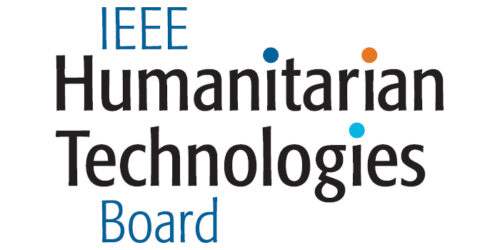
Grace Burleson
Assistant Professor at the University of Colorado Boulder
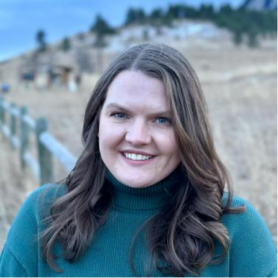 Dr. Grace Burleson is a multi-disciplinary design researcher with expertise in engineering for social impact and sustainable development applications. She is an assistant professor in mechanical engineering as well as a faculty fellow at the Mortenson Center for Global Engineering and Resilience. She has led research initiatives for a variety of socially engaged engineering organizations, including NASA’s Convergent Aeronautics Solutions Project, ASME’s Engineering for Change, and MAPLE Microdevelopment-Uganda. Burleson received her PhD in design science from the University of Michigan, as well as a dual-MS in mechanical engineering and applied anthropology and a BS in mechanical engineering from Oregon State University.
Dr. Grace Burleson is a multi-disciplinary design researcher with expertise in engineering for social impact and sustainable development applications. She is an assistant professor in mechanical engineering as well as a faculty fellow at the Mortenson Center for Global Engineering and Resilience. She has led research initiatives for a variety of socially engaged engineering organizations, including NASA’s Convergent Aeronautics Solutions Project, ASME’s Engineering for Change, and MAPLE Microdevelopment-Uganda. Burleson received her PhD in design science from the University of Michigan, as well as a dual-MS in mechanical engineering and applied anthropology and a BS in mechanical engineering from Oregon State University.
Lwanga Herbert
2024 IEEE Humanitarian Technologies Board Chair
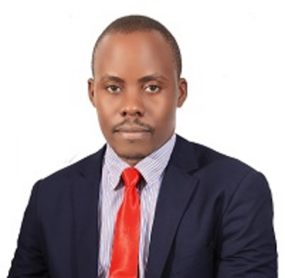 Lwanga Herbert is an innovation and technology enthusiast and practitioner inspired by technological solutions to diverse problems and challenges. He is the Co-founder of M/S LOG`EL GROUP LTD, an IT company based in Uganda and the co-founder of Log`el Science Foundation, a civil society organization which conducts research and development in science and technology. Lwanga Herbert was a beneficiary of the presidential innovation fund in Uganda from 2000-2005, which allowed him to develop a variety of innovations to address corresponding community challenges. These innovations were patented with the support of the Uganda National Council for Science and Technology. He has made several contributions within the IEEE community, which includes co-founding the IEEE Uganda Section and implementing humanitarian projects and programs in Uganda with IEEE support.
Lwanga Herbert is an innovation and technology enthusiast and practitioner inspired by technological solutions to diverse problems and challenges. He is the Co-founder of M/S LOG`EL GROUP LTD, an IT company based in Uganda and the co-founder of Log`el Science Foundation, a civil society organization which conducts research and development in science and technology. Lwanga Herbert was a beneficiary of the presidential innovation fund in Uganda from 2000-2005, which allowed him to develop a variety of innovations to address corresponding community challenges. These innovations were patented with the support of the Uganda National Council for Science and Technology. He has made several contributions within the IEEE community, which includes co-founding the IEEE Uganda Section and implementing humanitarian projects and programs in Uganda with IEEE support.
Clara Neppel
Senior Director, IEEE European Business Operations
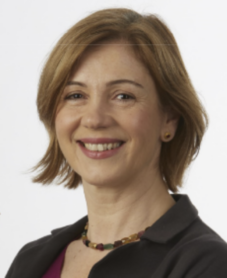 Dr. Clara Neppel is responsible for the growth of IEEE’s operations and presence in Europe, focusing on the needs of industry, academia, and government. She serves as a point of contact for initiatives with regard to technology, engineering, and related public policy issues that help to implement IEEE’s continued global commitment to fostering technological innovation for the benefit of humanity.
Dr. Clara Neppel is responsible for the growth of IEEE’s operations and presence in Europe, focusing on the needs of industry, academia, and government. She serves as a point of contact for initiatives with regard to technology, engineering, and related public policy issues that help to implement IEEE’s continued global commitment to fostering technological innovation for the benefit of humanity.
As the European head of the world’s largest technical professional organization, Dr. Neppel is dedicated, under a scientific and technological prism, to supporting and advancing human-centric and sustainable innovation. She contributes to issues regarding the technology policy of several international organizations, such as the OECD, European Commission, and Parliament or the Council of Europe. She is involved in efforts related to emerging technologies, entrepreneurship, education, as well as societal implications of technology.
Dr. Neppel is also a member of the Supervisory Board of EIT Digital, the Scientific-Industrial Advisory Board of Research Studios Austria FSG, the Software Competence Center Hagenberg Strategy Board, as well as the Independent Advisory Board of the UK RI Centre for Doctoral Training in Accountable, Responsible and Transparent AI.
She joined IEEE after many years with the European Patent Office where she was involved in various aspects relating to innovation, intellectual property, and public policy in the field of information and communication technologies.
Dr. Neppel holds a Ph.D. in Computer Science from the Technical University of Munich and a Master in Intellectual Property Law and Management from the University of Strasbourg.
Vincenzo Piuri
Full Professor in computer engineering at the Università degli Studi di Milano, Italy and the 2023 – 2024 IEEE Region 8 Director
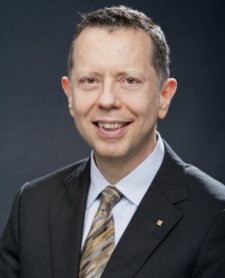 Vincenzo Piuri is Full Professor in computer engineering at the University of Milan, Italy. His main research interests are artificial intelligence, machine learning, biometrics, and industrial applications. He is Fellow of the IEEE and Distinguished Scientist of ACM. He is IEEE Region 8 Director and has been IEEE Vice President for Technical Activities.
Vincenzo Piuri is Full Professor in computer engineering at the University of Milan, Italy. His main research interests are artificial intelligence, machine learning, biometrics, and industrial applications. He is Fellow of the IEEE and Distinguished Scientist of ACM. He is IEEE Region 8 Director and has been IEEE Vice President for Technical Activities.
Mariela Machado Fantacchiotti
IEEE Humanitarian Technologies Senior Director
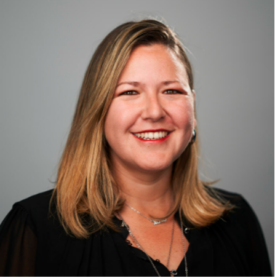 Mariela Machado is a skilled professional with nearly two decades of experience building, deploying, and scaling international humanitarian programs at the intersection of technology, social/environmental impact and public policy in the private sector, public sector and academia. As the Senior Director of Humanitarian Technology at the Institute of Electrical and Electronics Engineers (IEEE), Mariela leads multiple programs at the intersection of social/environmental impact and technology for this engineering society worldwide. Prior to IEEE, she was the Director of Programs at Newlab, a social innovation hub focused on scaling transformative technologies through public-private partnerships; she was also the Senior Program Manager at the American Society of Mechanical Engineer (ASME) & Engineering for Change working to support technology for sustainable development across all continents. Mariela advises capstone projects at the intersection of digital technology and policy at the School of International and Public Affairs (SIPA) at Columbia University and teaches a class on emerging digital technology for social and environmental impact. She is a Telecommunication Engineer with MSc in Information and Communication Technologies and a MPA in Sustainable Development from Columbia University. Mariela is fluent in 5 languages: Spanish, English, French, Swedish and Italian.
Mariela Machado is a skilled professional with nearly two decades of experience building, deploying, and scaling international humanitarian programs at the intersection of technology, social/environmental impact and public policy in the private sector, public sector and academia. As the Senior Director of Humanitarian Technology at the Institute of Electrical and Electronics Engineers (IEEE), Mariela leads multiple programs at the intersection of social/environmental impact and technology for this engineering society worldwide. Prior to IEEE, she was the Director of Programs at Newlab, a social innovation hub focused on scaling transformative technologies through public-private partnerships; she was also the Senior Program Manager at the American Society of Mechanical Engineer (ASME) & Engineering for Change working to support technology for sustainable development across all continents. Mariela advises capstone projects at the intersection of digital technology and policy at the School of International and Public Affairs (SIPA) at Columbia University and teaches a class on emerging digital technology for social and environmental impact. She is a Telecommunication Engineer with MSc in Information and Communication Technologies and a MPA in Sustainable Development from Columbia University. Mariela is fluent in 5 languages: Spanish, English, French, Swedish and Italian.

